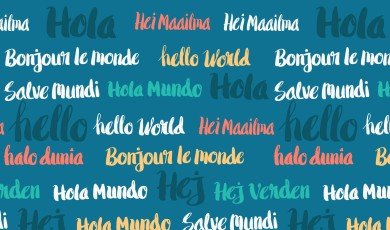
Languages are one of the most fascinating and complex aspects of human society. They are the key to communication and understanding, and are essential for building and maintaining relationships, both personal and professional.
There are over 7,000 languages spoken in the world today, each with its own unique history and structure. Some languages, such as Mandarin and Spanish, are spoken by millions of people across multiple countries, while others, such as endangered languages, are spoken by only a few hundred people.
One of the most interesting aspects of languages is their ability to evolve over time. New words and phrases are constantly being added to the lexicon, while old ones become obsolete. Languages also borrow words and phrases from other languages, creating a melting pot of linguistic influences.
Another fascinating aspect of languages is their relationship to culture. Each language is closely tied to the culture of the people who speak it, and learning a language is often seen as a way to understand and appreciate a different culture.
Language also plays a crucial role in education. Being able to speak multiple languages can open up many new opportunities and broaden one's perspective. It also can help in career advancement, as it can be a valuable skill in a globalized economy.
However, not everyone has access to language education and the opportunity to learn multiple languages. This is a problem known as linguistic inequality and it has negative effects on the individuals and societies that experience it.
In conclusion, languages are essential to human society and play a vital role in communication, culture, and education. They are constantly evolving and have a deep impact on the world around us. It is important to recognize the value of language education and work towards linguistic equality.








